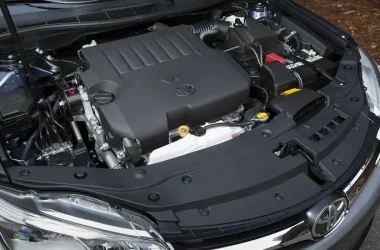Managing used car inventory efficiently is vital for your dealership to meet customer demands and maximize profit. But how can you do this while still keeping costs low?
Dealerships will often ask what you want to spend monthly on a new vehicle and how much you have in savings for a down payment.
Know What You Want
When buying a used Kia near Mechanicsburg, it is important to know what you want. This means thinking about your yearly mileage, how many people the vehicle will need to accommodate, and if the type of car has any other features that are important to you.
During negotiations, a dealer may ask you about your budget and whether you plan on financing the car through them. This is because they know that some buyers are known as “payment shoppers,” who negotiate based on monthly payments.
When negotiating, compare the seller’s price with online pricing guides. This will help ensure you get a fair price and that the car is not overpriced. Also, remember to take any car you’re considering for a test drive to see how it drives on the road.
Know What You Can Afford
When shopping for a used car, knowing what you can afford is important. This includes knowing whether you’re planning on financing or paying cash.
Dealerships often try to sell buyers add-ons, like paint and fabric protection, rust-proofing, or something called gap insurance, which can be expensive. Buyers should ask for the monthly payments with and without these extra options to see if they’re affordable.
Also, when negotiating, starting with the dealership’s best price rather than the advertised vehicle is important. This way, you can avoid insulting the salesperson or seller at the outset of the process. You may even be able to use the lower price as leverage during negotiations, especially if you’re paying with cash. This could help you get the best deal possible.
Know What You Can’t Afford
A dealer may offer to sell you a used car for cash, which could be a good option, especially if you can afford the price upfront. This can give you more leverage during negotiations and remove the need for financing, and some dealerships will honor returns if something goes wrong with the vehicle.
First, they are often reluctant to give you the vehicle’s lowest price (“out-the-door” price) upfront. This number includes the manufacturer’s suggested retail price plus any taxes and fees. Secondly, it can be hard to keep your goals in mind when discussing the vehicle with a dealer because they may ask you about trade-in offers or whether or not you’ll need financing.
Know What You’re Expecting
The car buying process can be stressful. Experts suggest doing your research and ensuring you understand what you’re getting into before heading to the dealership.
Some dealers may ask how much you can afford or if you’re planning to finance the vehicle. Be cautious about telling them how much you want to pay monthly because some people are known as “payment shoppers,” looking for the lowest possible payments.
Another thing to be wary of is the dealer adding on fees and taxes that weren’t discussed beforehand. It’s helpful to know the “out-the-door price” before negotiations begin, which can be calculated using online calculators. Then, you’ll be prepared to negotiate. The right preparations can make the entire experience less intimidating for even the most nervous car buyers.
Know What You’re Not Expecting
Buying a car is exciting, but there are a few things that you should keep in mind to ensure a smooth and successful transaction. Having a clear idea of what you want, being able to afford it, and knowing what to look for are just a few key factors when purchasing a used car.
Be prepared to negotiate and understand all the numbers thrown around. It is a good idea to write down everything said and repeat the numbers to the seller. It’s also important to be aware of fees, as some dealers will hide them or include bogus charges.
Be careful when discussing your budget; some salespeople will ask what you hope to pay monthly for the vehicle. This is known as payment shopping and can lead to higher-than-expected prices and loan terms.








